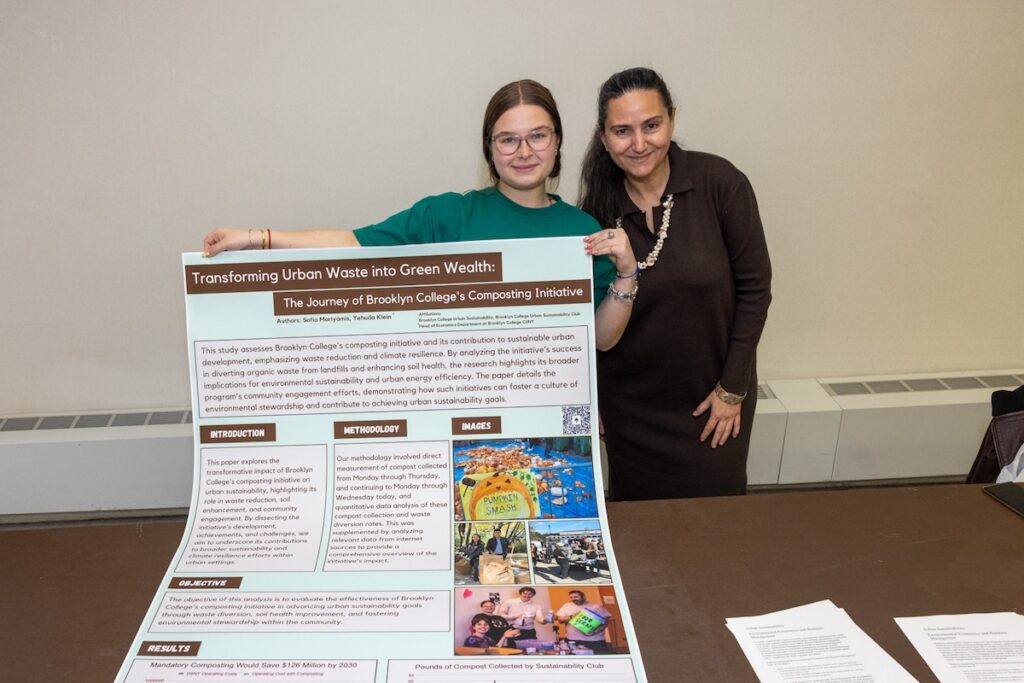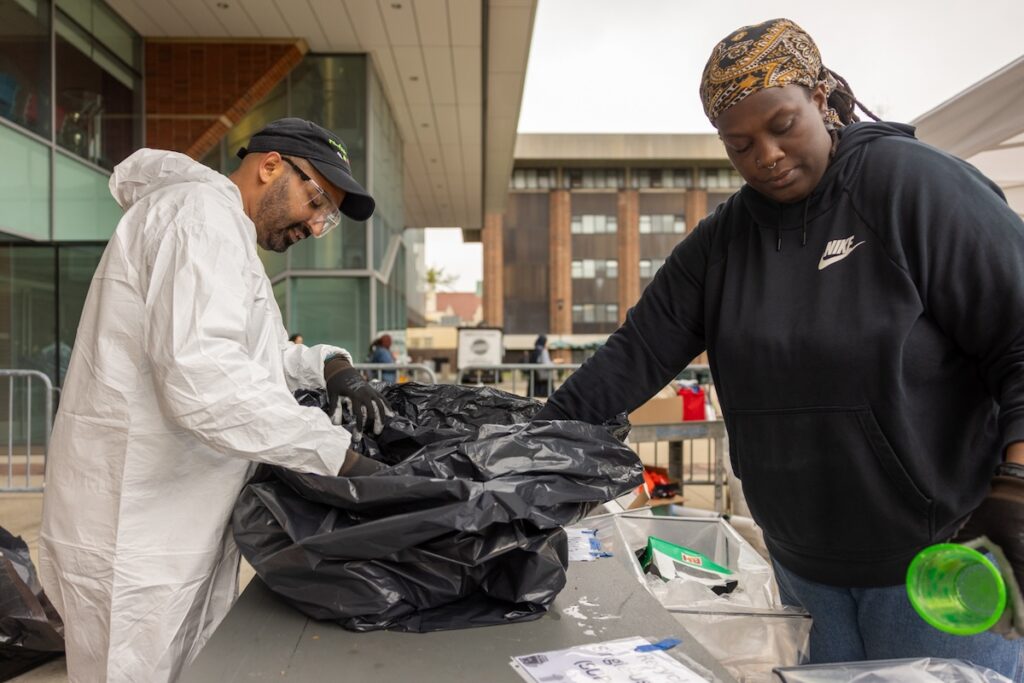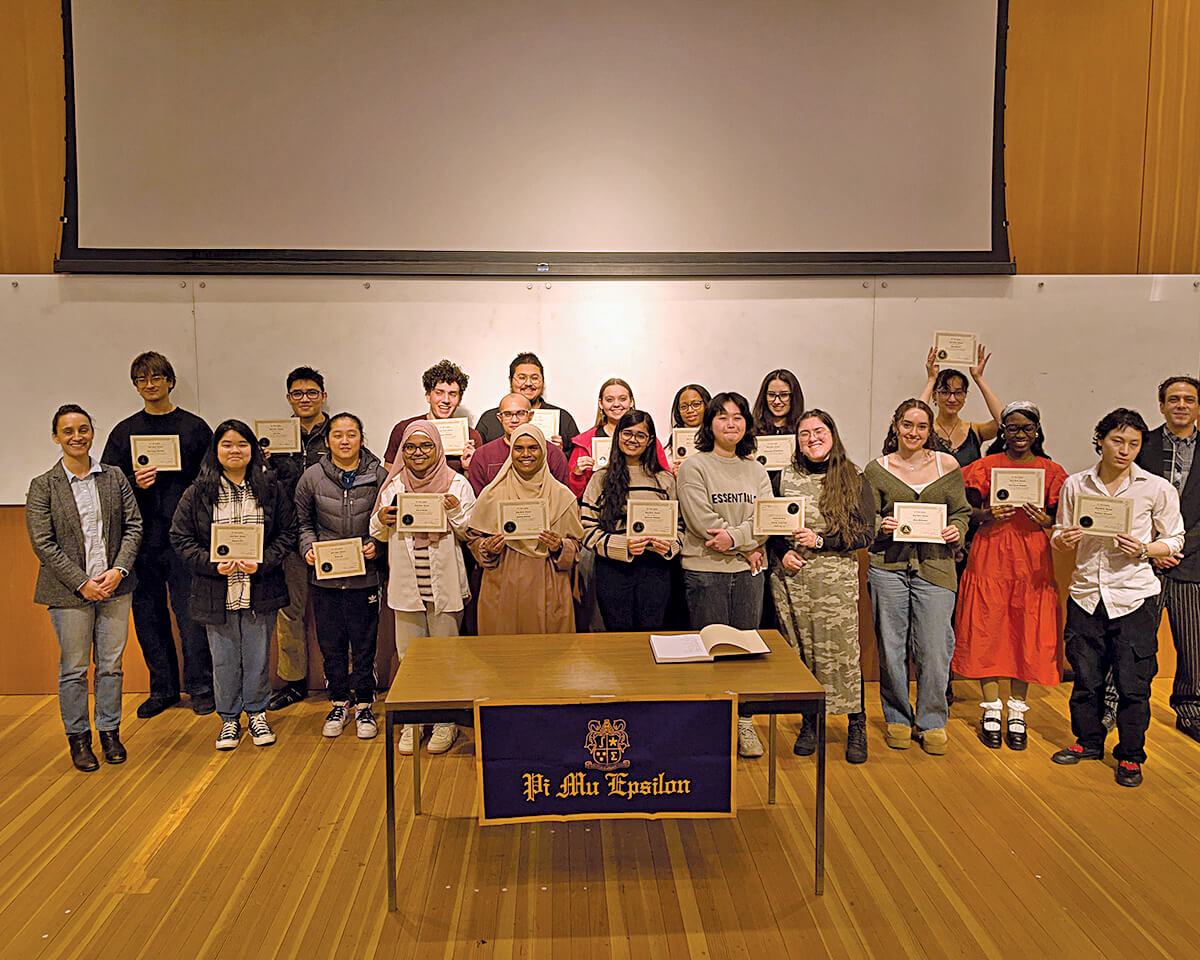As part of its ongoing effort to build a culture of sustainability across campus and reduce its environmental impact through engagement, education, and research initiatives, Brooklyn College’s Office of Environmental Health and Safety/Sustainability, along with the Campus Sustainability Council and Strategic Initiatives, released its annual Impact Report for the 2022–23 academic year.
The report highlights several benchmarks from key focus areas—campus operations, environmental justice, engagement, waste minimization, academics, nutrition, and others—while offering benchmarks and forward-thinking plans for the future.

President of the Sustainability Club and Macaulay Honors student from the Urban Sustainability Program Sofia Mariyamis presents Brooklyn College’s composting initiative with Professor of Economics Nadia Doytch during the Sustainability Fair on April 18.
“Students know climate change is a pressing issue and expect their college to take action,” said Carrie Sadovnik, the director of the Office of Environmental Health and Safety/Sustainability and the co-chair of the Campus Sustainability Council. “Brooklyn College is accelerating its climate leadership, coupled with education and engagement, to address these concerns and build a vibrant and sustainable future for our students and the broader community.”

Stalin Espinal ’18, sustainability coordinator from the Office of Environmental Health and Safety/Sustainability, and Yarnelle Bauzil, coordinator for the college’s community garden, separate trash at the college’s first large campus waste audit, which will help assess recycling practices. The waste audit team sorted 506 pounds of waste: Of the total waste stream, there were 197.7 pounds of paper and cardboard materials; 34.5 pounds of metal, glass, plastic, and carton materials; 227.51 pounds of landfill-bound trash materials, and 46.3 pounds of compostable and organic materials.
Highlighting the incredible work done by scores of students, staff, and faculty, the report includes information and data that proves Brooklyn College to be a leader in environmental responsibility. Some areas where the campus shined include:
- Progress on BuildSmart 2025 Goals: Improved accounting of energy savings by project with 10 of more 85 energy conservation projects completed representing, one million kWh saved.
- Increased Student Engagement: More than 150 student pledges for a Plastic-Free Ocean campaign, 252 volunteers contributing 454 hours to sustainability initiatives.
- Waste Reduction: Released guidelines for green events, achieved a 27.7% waste diversion rate through increased recycling and composting initiatives.
- Peer Recognition: STARS Silver Rating received by the Association for the Advancement of Sustainability in Higher Education.
- Applied Learning: Campus-based internships are available to students to work with the Sustainability Office and the BC Eats garden. Academic programs increasingly collaborate with operational partners to use the campus as a “living lab” for both informal learning activities and rigorous research.
- Improved Campus Operations: Converting to LED lighting in 20% of re-lamping locations, which represents 37 tCO2; partnered with NYC Parks to establish a native plant bed; piloted a food waste collection program.
- Reduced Reliance on Bottled Water: Installed an additional five water bottle refilling stations, with more than 375,000 plastic bottles diverted from landfills.
Read the full report here.



